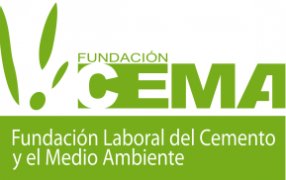The cement industry prevented the emission of 850,000 tonnes of CO2 in 2012

León, 3 June, 2014. During 2012, energy recovery of waste in cement factories prevented the emission of 850,000 tonnes of CO2 into the atmosphere, saving the equivalent of almost 390,000 tonnes of oil, which is in turn comparable to the annual energy consumption in 550,000 households. This information can be found in the latest edition of the Report on recycling and recovery of waste in Spain’s cement industry, drawn up by the Cerdà Institute and presented by the Labour Foundation for Cement and the Environment (CEMA). This report also outlines that in 28 of the 35 cement factories operating in Spain, almost 795,000 tonnes of waste have been recovered in 2012, which is equivalent to the replacement of 25% of the energy used in the cement kilns.
The latest edition of the study was presented today in the Territorial Delegation of the Regional Government of Castilla y León. The initiative was created in 2009, in order to continually monitor the evolution of the recovery of waste in cement factories, including comprehensive information on autonomous communities.
The report states that during 2012, the almost 50,000 tonnes of waste used as fuel in the three cement factories in the region of Castilla y León, avoided the emission of 56,000 tonnes of CO2 into the atmosphere. These plants are run by Cementos Cosmos, Cementos Tudela Veguín and Cementos Portland Valderrivas, and are situated in the towns of Toral de los Vados and La Robla in the province of León, and in the town of Hontoria in Palencia, respectively.
“Cement plants are an option for the management of waste, given that the characteristics of their production process allow for the waste to be recycled and energy to be generated, in optimum technical and environmental conditions, under maximum health and safety guarantees”, commented Project Manager at the Cerdà Institute, Albert Bel.
“According to data from the European Union, Spain sends 63% of its waste to landfills, as opposed to countries such as Germany, Belgium or Holland, in which landfills are practically inexistent. In Germany for example, setting restrictions on the dumping of non-recyclable, high-calorific municipal waste has reduced greenhouse gas emissions by up to 24%” said Managing Director of Foundation CEMA, Dimas Vallina. “The use of non recyclable waste as fuel in cement kilns is rising all over the world, particularly in countries with advanced environmental protection schemes. Spain cannot be an exception”, added Vallina.
Published 6/5/14

